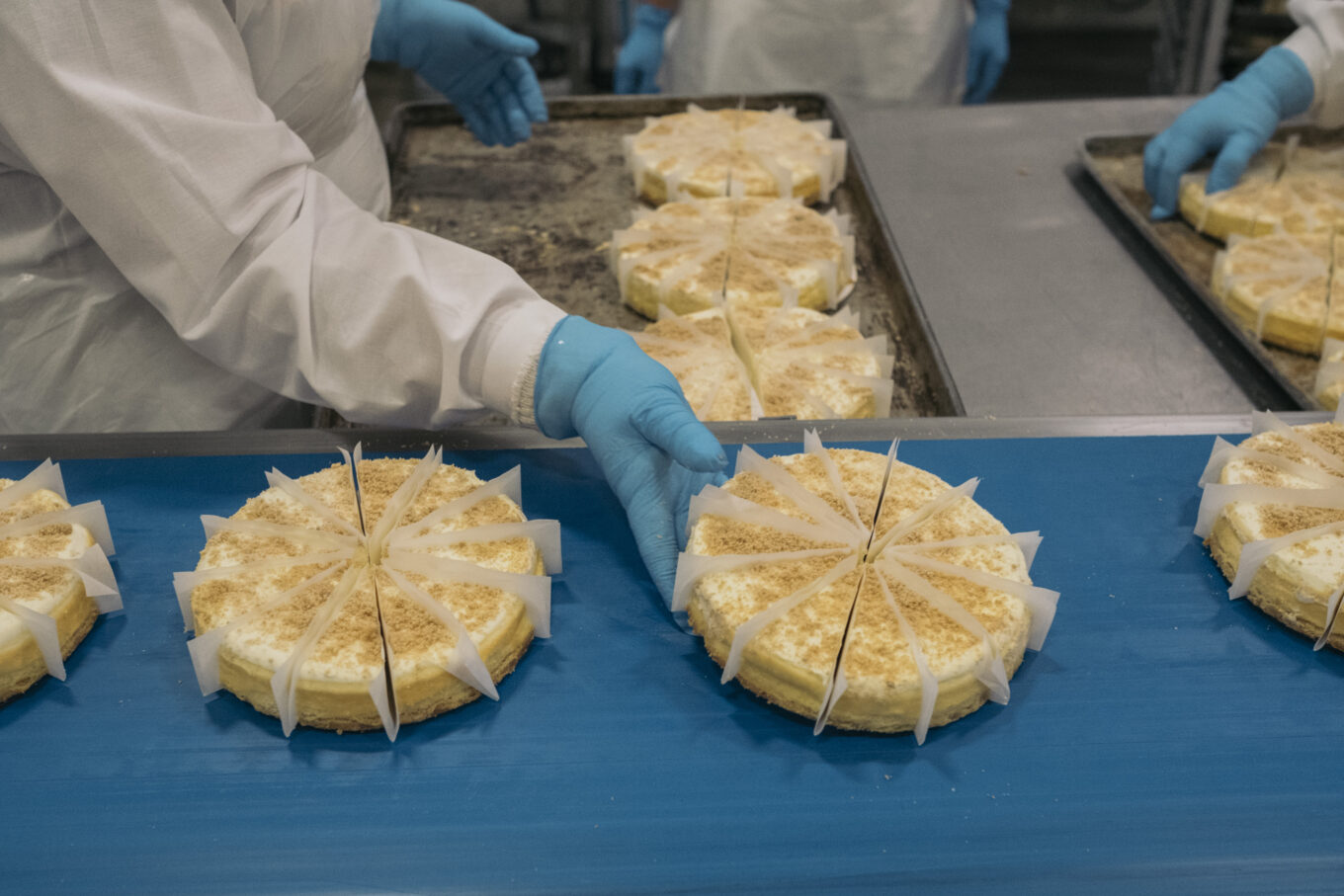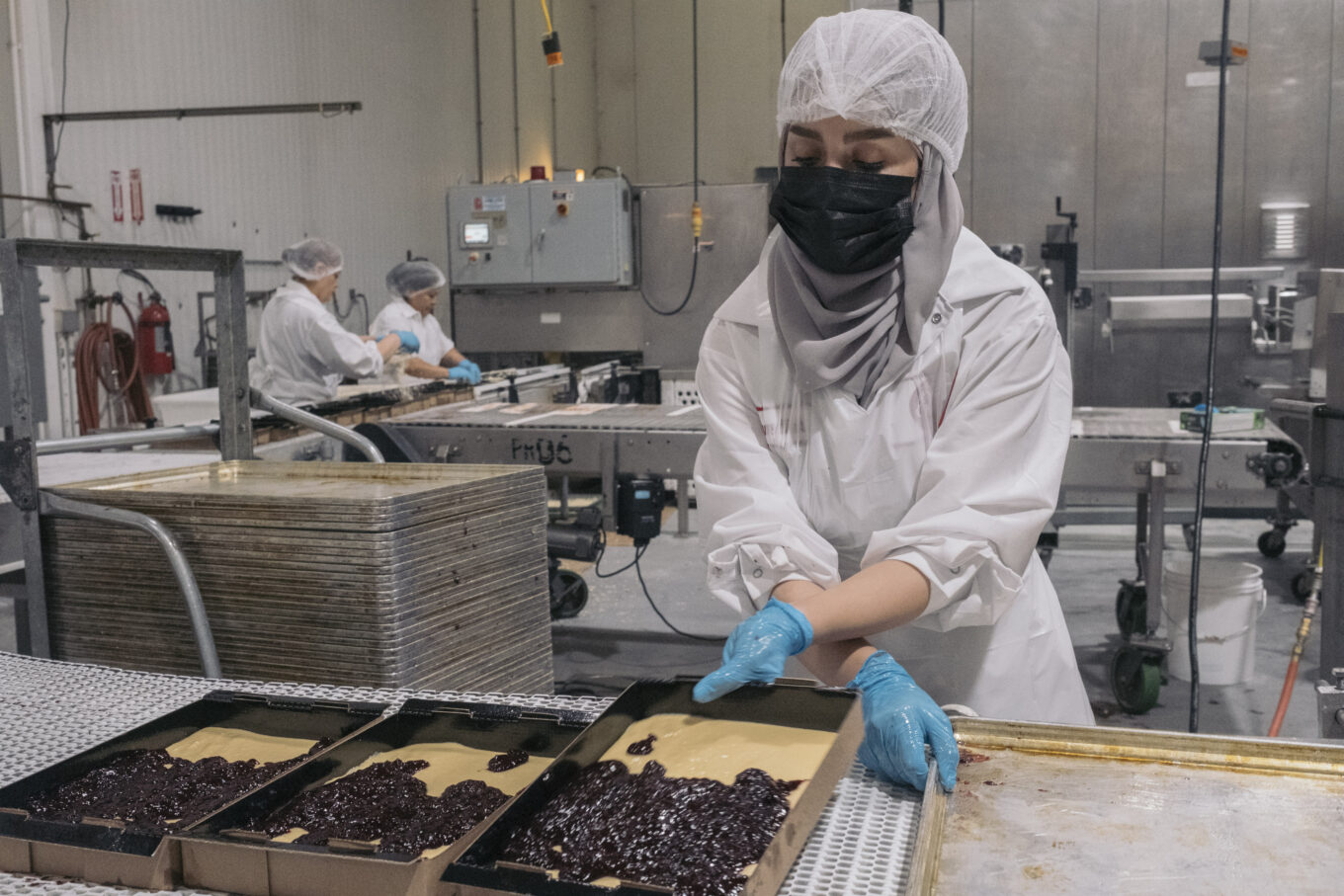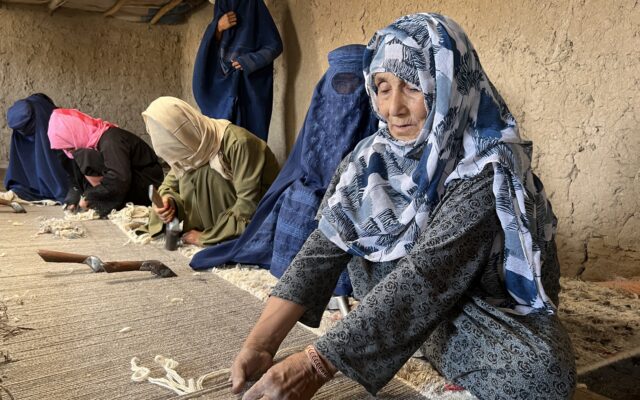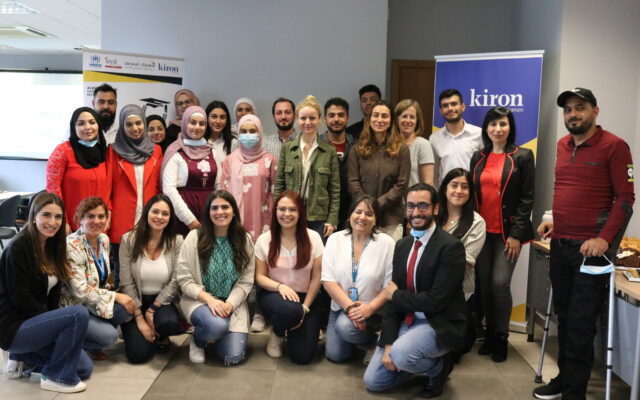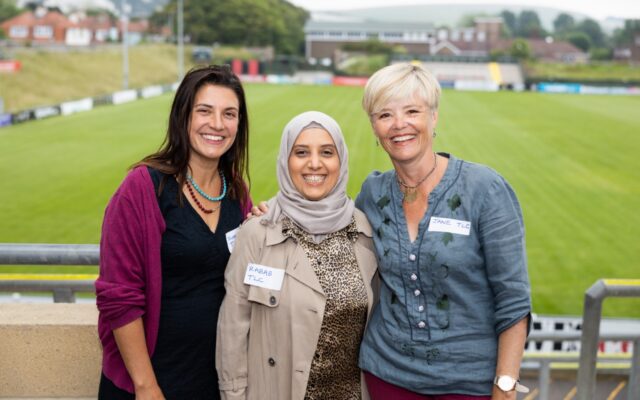Eli’s Chicago Cheesecake creates a winning recipe for refugee inclusion
13.12.23
Elias Kasongo, a refugee from DR Congo, and his son John at Eli’s Cheesecake Company in Chicago, US, where they both work.
Eli Schulman, the visionary founder of Eli’s Cheesecake Company in Chicago, was known not only for his tasty baked confections but for living by a timeless creed: “Treat others as if you were the other.” His philosophy became a guiding ethos for the company, and over the past four decades it has helped transform the lives of resettled refugees in the city.
The commitment to empowering refugees reflects Eli’s Cheesecake’s origin story. Eli himself was the son of Czech refugees. Marc, carrying the torch as Eli’s only child, underscores this heritage. “Our grandparents came to the United States in the early 20th century as refugees. So we have to be very cognizant about how far individuals can come,” he said. “It’s really been part of our culture, as so many of our now leaders in the company came to us as refugees. We’ve grown together and we’ve really seen the great impact of having such talented, dedicated people in the Eli’s community.”
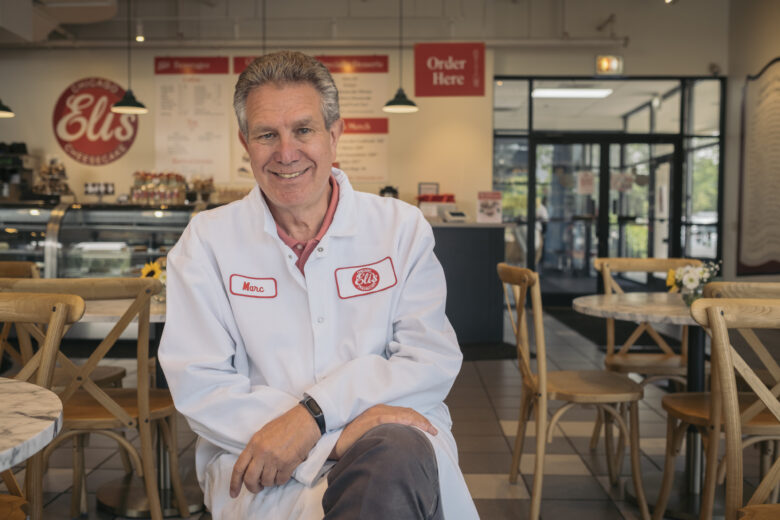
Marc Schulman is the President and CEO of Eli’s Cheesecake Company, where 30 per cent of the workforce are refugees. © UNHCR/Jeoffrey Guillemard
One such remarkable story is Elias Kasongo, a refugee from the Democratic Republic of the Congo. In the early 1990s, he fled conflict in his country and went to Zambia, where he stayed in a refugee camp for four years before being resettled in Chicago, Illinois. There, his resettlement caseworker found him an opportunity with Eli’s Cheesecake.
He started out washing cake dishes, but as his English improved he advanced into various roles, including crust-making, sanitation, prep cooking and, eventually, the front office.
Today, Elias is the Vice President of Purchasing, overseeing millions of dollars’ worth of ingredient purchases for the company’s famous desserts. These range from their legendary original plain cheesecake – a fluffy, golden-baked “Chicago” take on its traditional New York counterpart – to modern gluten-free products sold in chain stores like Starbucks across the United States.
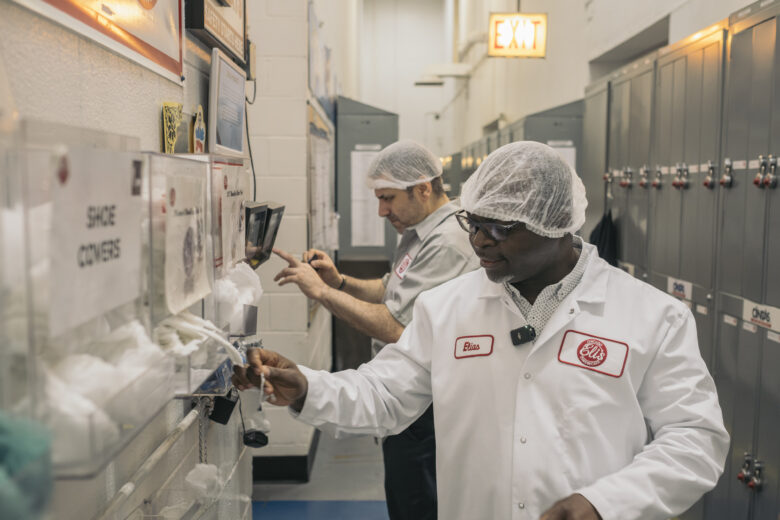
Elias Kasongo (front), a refugee from the Democratic Republic of the Congo, has risen from dishwasher to Vice President of Purchasing at Eli’s Cheesecake. © UNHCR/Jeoffrey Guillemard
“Who could have thought that?” he mused as he walked by the dish station where he started. “It takes companies like Eli’s Cheesecake to give you an opportunity to prove yourself and lift yourself up.”
Increasing government resettlement opportunities and strengthening the role of the private sector in helping refugees achieve self-reliance will be a major focus of the Global Refugee Forum in Geneva from 13-15 December. Governments and businesses from around the world will gather alongside municipalities, international organizations, NGOs, refugee-led organizations and others to pledge action to help refugees reduce their reliance on aid, apply their skills and make meaningful contributions to their host societies and economies.
Family business
For Elias and many of his colleagues, Eli’s Cheesecake is more than just a workplace; it’s a second family. “As a refugee, you come [to] a place where you don’t know anybody, and Eli’s became a place where I felt at home. I had no relatives, no friends, nothing. Eli’s became home for me,” he said.
The loyalty of its employees, some of whom have been with the company for decades, is a testament to the success of its approach. “The fact that people have stayed for so long, that by itself shows that Eli’s has done something right,” added Elias. This summer, his son, John, joined the company as an intern, continuing the legacy of Eli’s Cheesecake as a family business into the next generation.
Organizations that work with Eli’s Cheesecake agree that the company’s commitment to refugees goes beyond simply providing economic opportunities; it enriches lives.
“Our decades-long partnership with Eli’s Cheesecake embodies this mission perfectly,” said Zachary Dmyterko, a spokesperson at RefugeeOne, a refugee resettlement agency. “By offering genuine employment opportunities to refugees, Eli’s doesn’t just provide a paycheck, they gift a sense of belonging, purpose, and hope.”
For Marc Schulman, staying true to his father’s principles and empowering refugees has proven to be a recipe for success and one that he believes others should follow. “The individuals who’ve come to Eli’s as refugees, that have overcome so much to get to this country, are just making tremendous contributions to our success,” he said.
“Our recommendation to any business – and certainly in our Chicago community – is that it’s really worth the investment.”


